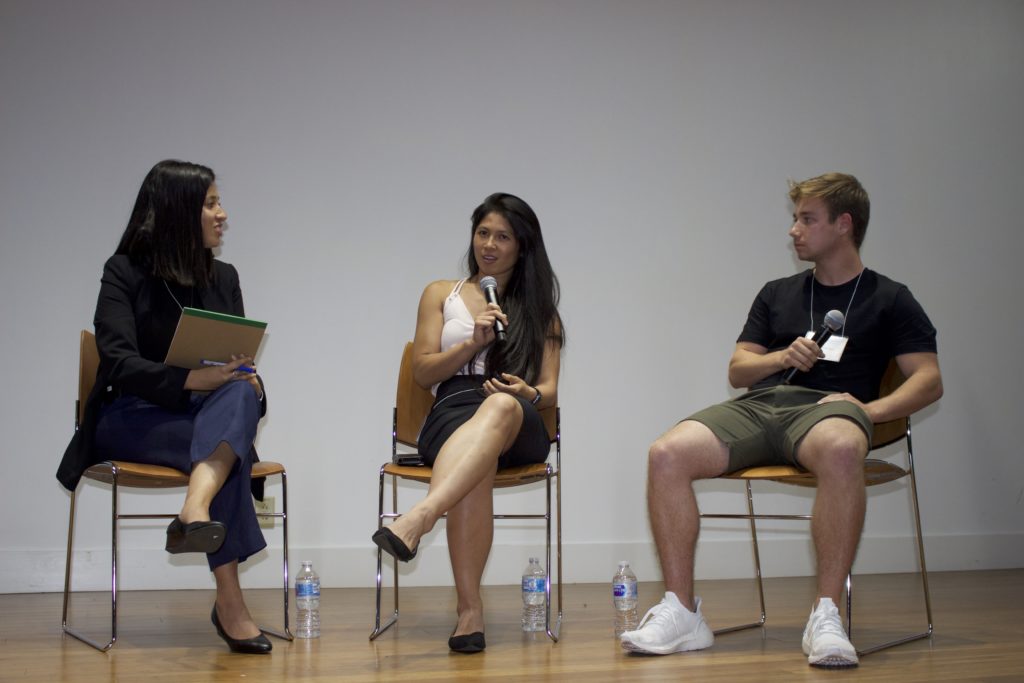

Young, entrepreneurial former UC Berkeley students met for a panel discussion at the Berkeley Method of Entrepreneurship (BMoE) Bootcamp held this week at UC Berkeley. The panel featured Mai Nguyen, former Berkeley undergraduate and PhD student and the CEO/Co-Founder of OptoCeutics, and former Berkeley undergraduate student Matthew Milford, co-founder of Foresight.
The panel was moderated by Danielle Vivo, program manager at Uber and former program manager for the BMoE Bootcamp. She guided the panelists through a variety of questions about their transitions from Berkeley students to successful entrepreneur.
Mai, who was a former Berkeley PhD student, met her co-founder in the Banatao Auditorium where the panel was being held. Her startup uses blue light therapy to create a non-invasive light technology in order to improve cognitive function, especially for those struggling with neurodegenerative diseases.
Matt got his start in entrepreneurship and innovation at the Sutardja Center when he attended the BMoE Bootcamp and the European Innovation Academy in Nice, France in the summer of 2016. Matt said he is very thankful for starting in the entrepreneurship field early on in his college career.
“The earlier you start the better,” said Matt. “It’s awesome that I got to do the BMoE Bootcamp as well as the European Innovation Academy, and a challenge lab course through SCET.”
Matt was one of the youngest participants at EIA, and he didn’t realize until after he arrived in France that he was getting a head start. According to Matt, the upperclassmen in programs were seeking internships and post-grad jobs, so their energy focused elsewhere.
“Back at Berkeley, I was very fortunate to be surrounded by people who were really intelligent,” Matt added. “Everyone at Berkeley has that, but having people around who you like and are smart makes it easier to work together on something you care about. Picking the right people to work with is really important.”
While UC Berkeley and SCET helped him prepare for the workforce, school didn’t teach him how to best manage people. He had to learn this skill through trial and error with his startup. Both he and Mai noted that they often oversee employees who are quite a bit older than them, which poses a unique challenge for young entrepreneurs.
Mai and Matt encouraged panel participants to build reliable support networks early on. The pair said that none of their success would have been possible without the help of their support system and networks. Places like SCET are ideal networks to build, and Bootcamp is a good place to start.
“Sometimes you need help from peers and mentors,” said Mai. “Just because it’s your idea doesn’t mean you can execute without the support of a team.”
In addition to creating a supportive network, Mai believes that fostering a really tight-knit bond within the company culture is important.
“The team is a family, and at the end of the day, we’re all human, and we all need to prioritize our mental health over a purely business mindset,” Mai said. “It’s [also] important for women to build one another up, instead of competing with one another.”
